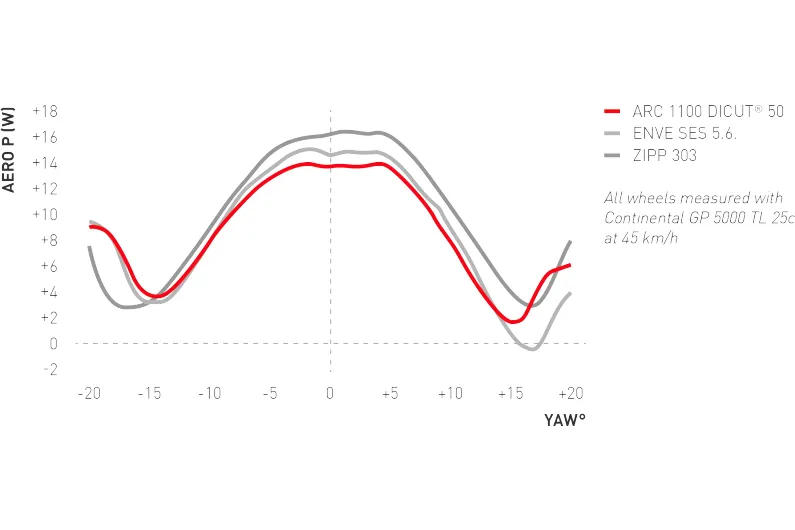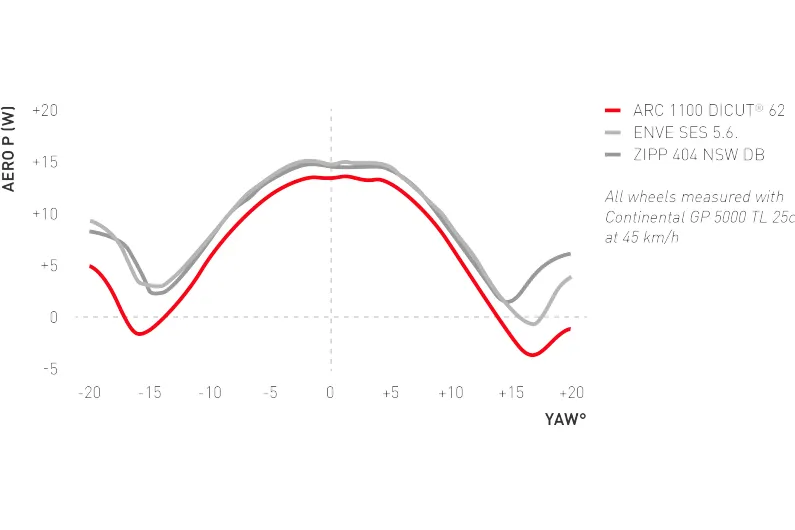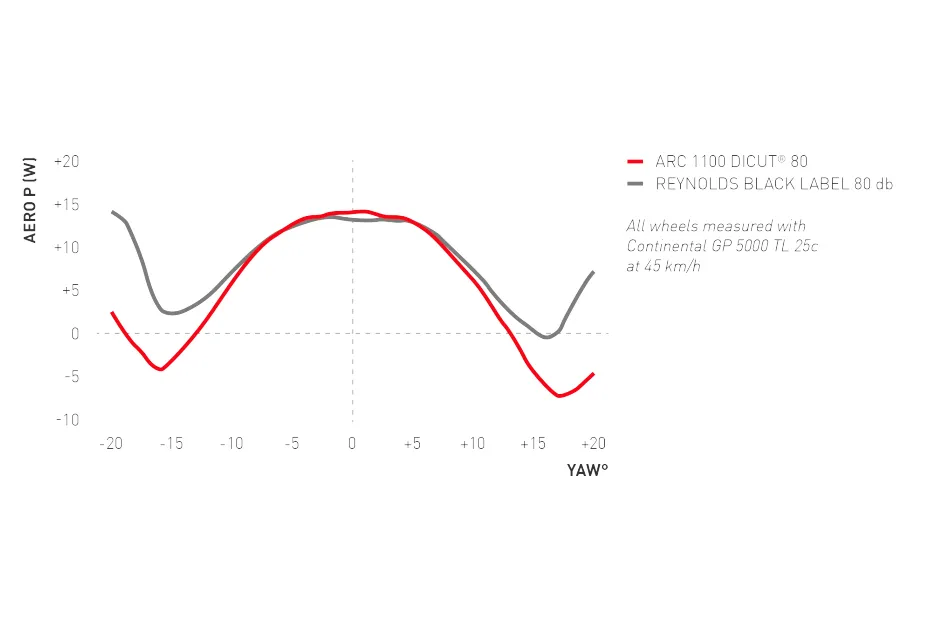DT Swiss has totally revamped its line of ARC DICUT 1100 and 1400 aero road wheels. Now designed explicitly for disc brake-equipped bikes and, as such, “liberated from the previous installation space restrictions of rim brakes”, DT Swiss reckons this is its most well-rounded aero wheel package to date.
Available in 50, 62 and 80mm depths, the 20mm-wide (internal) wheels are also designed with wider tyres and the increasing popularity of tubeless tech in mind. For smaller riders, a 650b version of the 50mm-deep wheel is available at both levels.
Aero chops
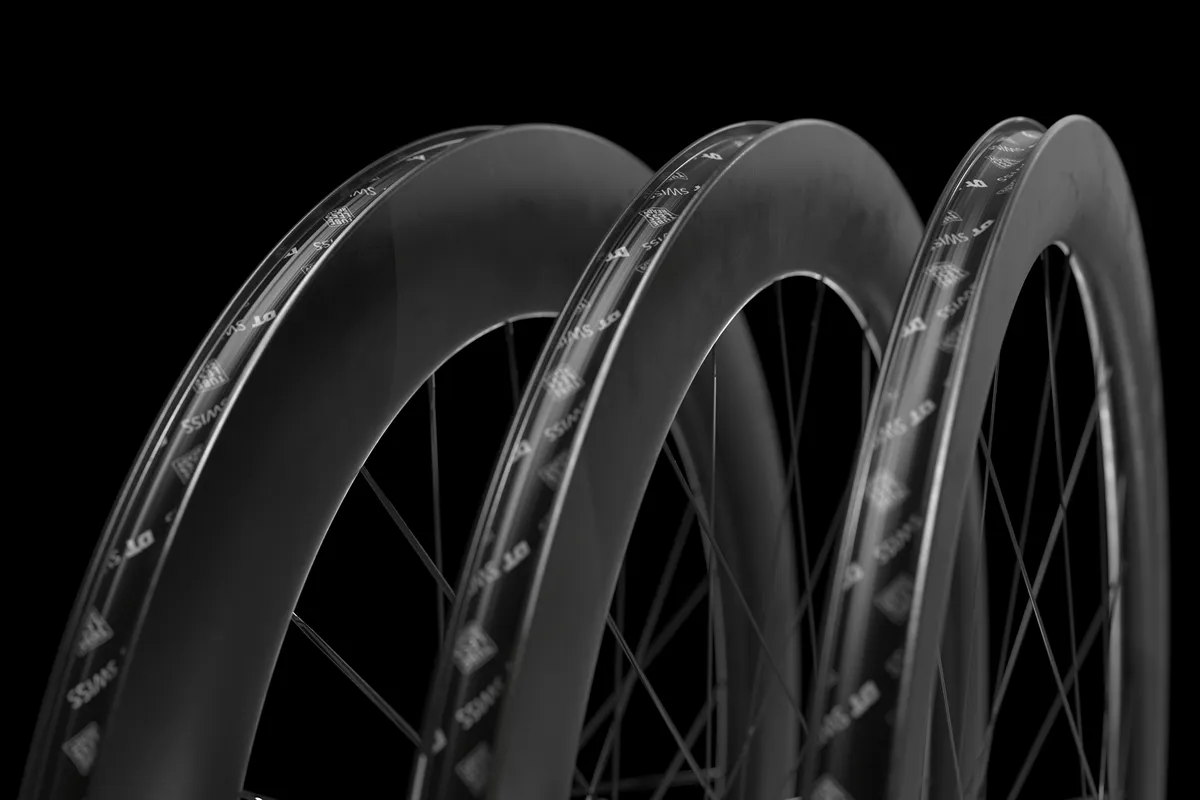
Under its overarching Aero+ design philosophy, DT Swiss has taken into account “translational and rotational drag, rolling resistance and steering moment” to make – what it claims to be – the best all-round aero wheel package on the market.
Alongside aero and handling characteristics, another key objective of the development of the wheels was to bring the ARC range up to date, “incorporating the current trends of disc brakes, [as well as] tubeless and wider tyres”.
The first point is key – previous-generation wheels in DT’s ARC lineup were designed with the constraints of a rim brake in mind, whereas these have been designed with discs alone from the off.
This shift is best reflected in the overall profile of the rims.
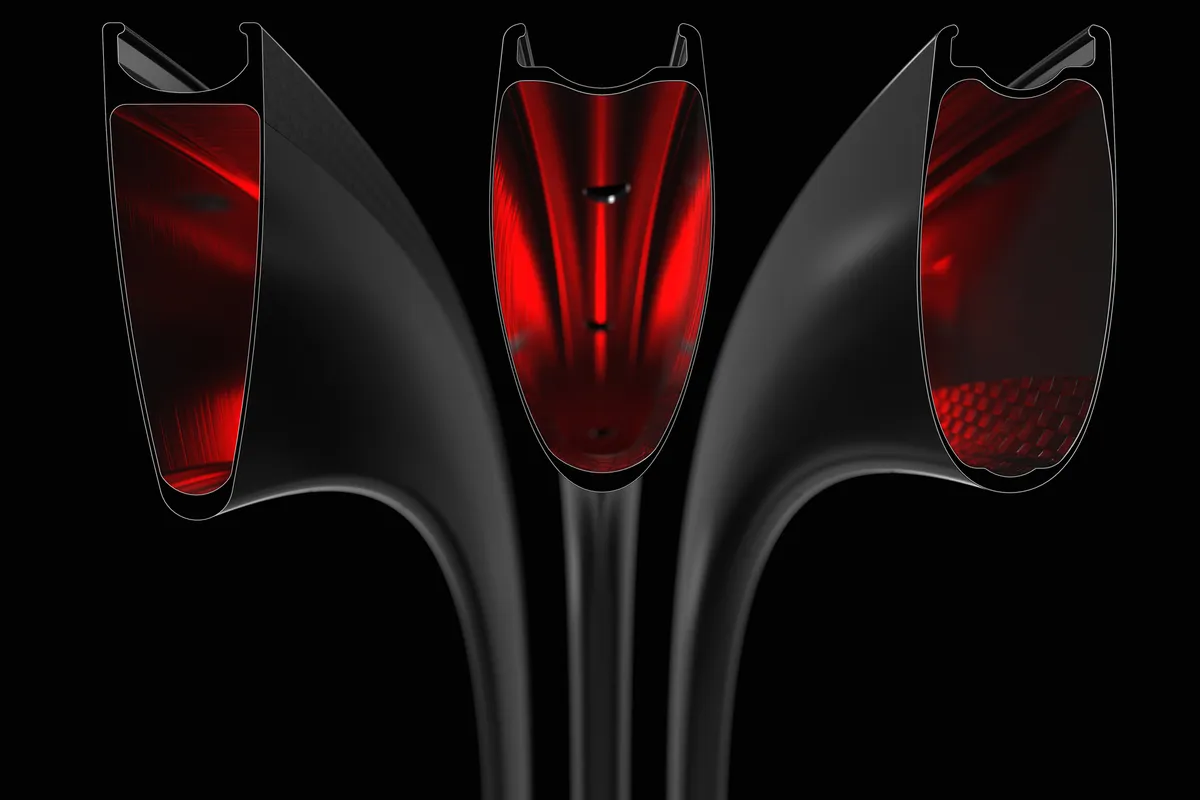
Early aero rims were – broadly speaking – aggressively V-shaped. These could be fast in certain conditions, when used with appropriately narrow tyres, but handling suffered in crosswinds.
Trends in rim design then moved towards very blunt profiled and roughly U-shaped rims with squared profiles around the outer circumference to accommodate rim brakes. They were also constrained to narrower overall widths.
The overall profile of the new DICUT 1100 and 1400 rims is best thought of as a combination of the two, with DT Swiss dubbing it a VU-shaped rim.
According to DT Swiss, the design means that as “little turbulence [as possible] occurs at the transition area between rim and tyre”, meaning airflow will “follow the shape of the rim for as long as possible… to delay stalling”.
This, DT claims, is key to producing a predictable and fast wheelset.
The inner width of the rim also grows from 17mm to 20mm. While 20mm isn’t wildy wide compared to some new wheels on the market, it will still give a rounder profile to wider tyres.
Assuming the tyre conforms to the ‘105 per cent rule’, as well as improving handling, this smooths the transition between the tyre and the rim, potentially improving aero performance.
What does all of this aero goodness add up to?
- In DT Swiss’s own testing, the ARC DICUT 1100 52mm-deep wheels (claimed weight 1,472g) were shown to be faster than an ENVE SES 5.6 or Zipp 303 at low yaw angles, though those wheels just beat the DT’s at higher angles
- Compared to a Zipp 404 NSW DB and the aforementioned ENVE wheel, the 62mm version (claimed weight 1,676g) of the wheelset was shown to be faster in DT’s own testing, with “up to 2 watts in aero drag performance”. At high yaw angles (18 degrees), the wheels are claimed to experience -3 watts of negative drag
- Finally, the ARC 1100 DICUT 80 (claimed weight 1,762g) is claimed to actually “push the cyclist forward with negative drag of up to -7 watts” at yaw angles of 16degrees
While we can only take DT’s word at face value, it’s worth stressing that the white paper that accompanies the wheels is very in-depth, with far more data supplied than a typical wheel launch. Make of that what you will.
Tubeless, naturally
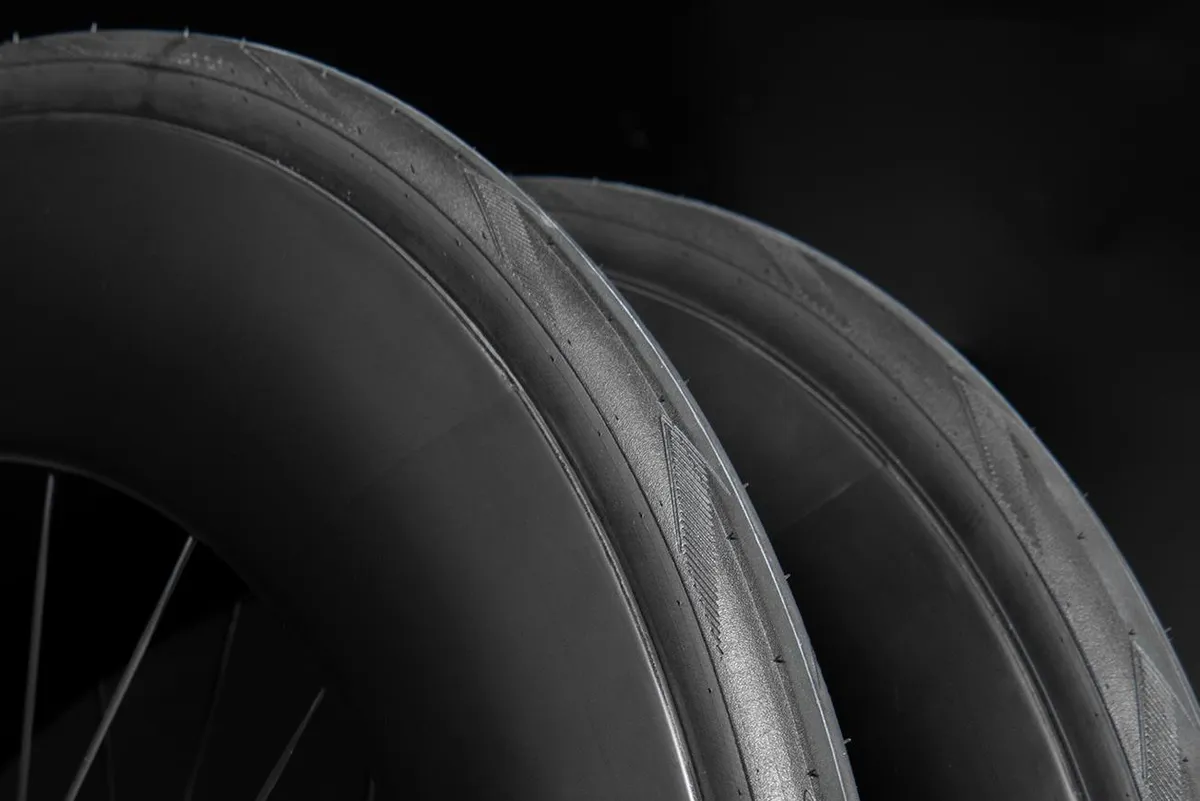
The wheels are – of course, it is 2020 – tubeless compatible, using a standard beaded hook on all rims.
Since it’s a hot trend in road bike tech, we felt duty-bound to ask why DT Swiss has stuck steadfastly with a hooked rim design as opposed to the increasingly popular hookless designs.
DT Swiss cited wider and more reliable tyre compatibility, as well as the ability to run higher pressures – without sacrificing the ability to run lower pressures – compared to a hookless design.
Hooked or otherwise, it’s worth remembering there is still no official ISO or ETRTO standard for road tubeless out in the wild. However, our experiences with road tubeless setup on DT Swiss wheels has always been positive, and we expect the same here.
The wheels are aerodynamically optimised around a 25mm tyre but DT adds that, if you want to increase comfort, you could opt for a 28mm tyre on the rear wheel “to optimize rolling resistance and comfort”.
Exactly how using this mixed setup would affect aero performance is not divulged in the press release.
New-flange-eld spokes
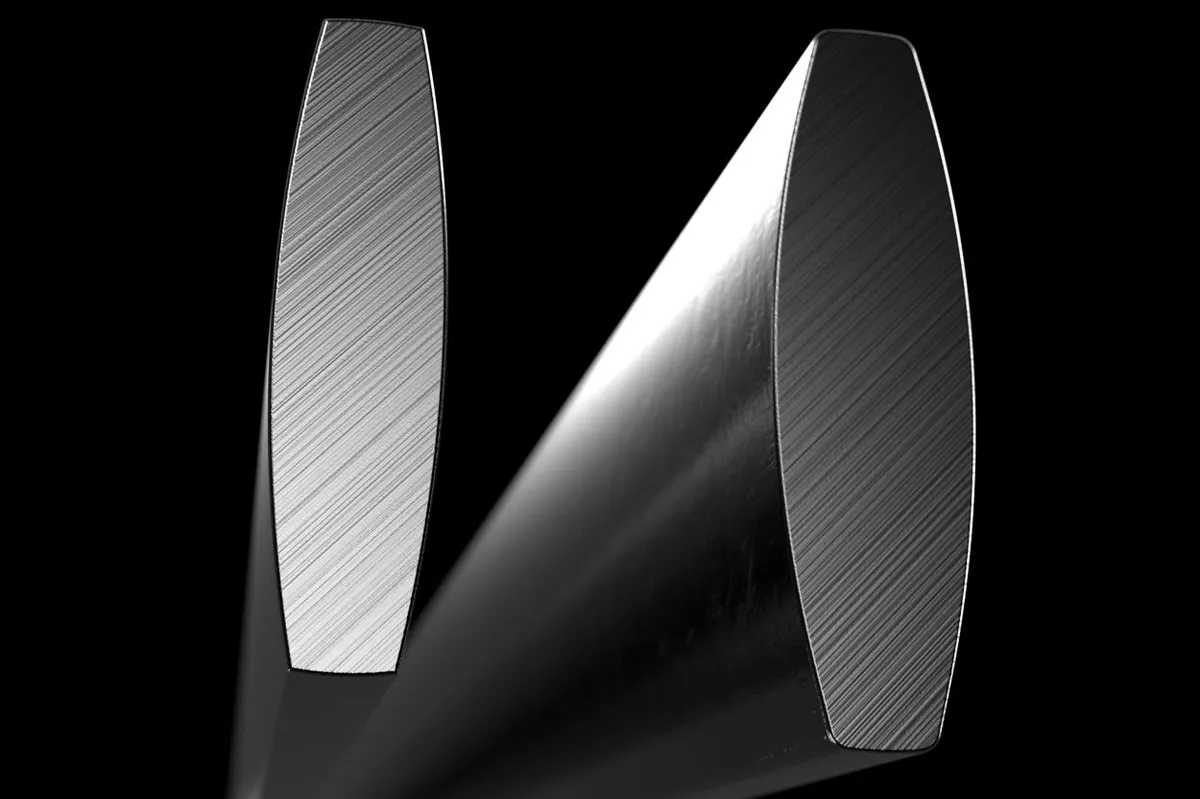
Two new spokes have been designed to accompany the new wheels – the DT Swiss Aerolite II and Aerocomp II.
Both feature an updated flattened aero design that, DT claims, can reduce rotational drag by up to 1.1 watt compared to the outgoing DT Aero Comp.
Modest aero savings aside, the spokes are also said to have a higher tensile strength.
We asked if the design of these spokes was influenced by a patent for a novel aero spoke that changed profile along its length that BikeRadar reported on in 2018. The brand confirmed that the work done on that project had fed into this design, but didn’t speculate further, so it’s possible we’ll see more from that patent down the line.
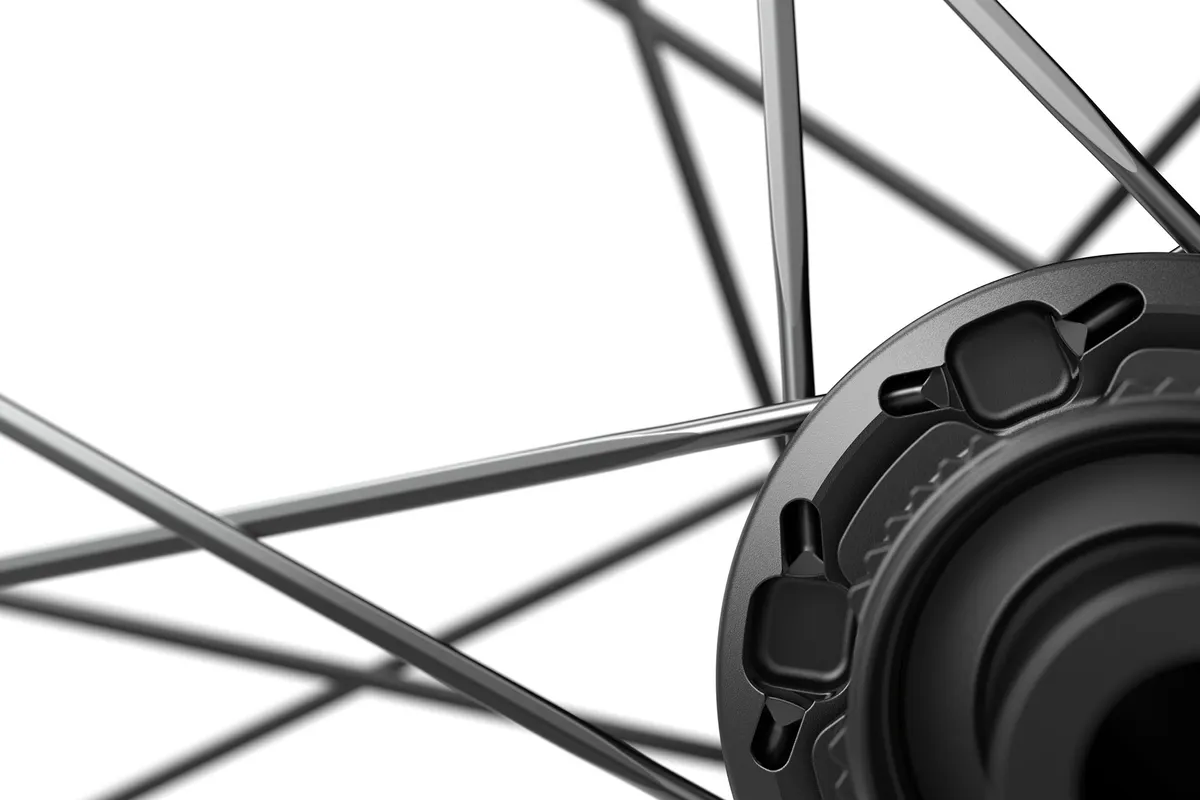
The straight-pull spokes use a proprietary T-head at the hub end. This design has been seen on other high-end DT Swiss wheels and has two distinct advantages.
Unlike conventional straight-pull spokes, the T-head means that these can’t rotate at the hub end, which should ease wheel truing down the line. It also means that the spokes will remain at their most aerodynamic position.
The wheels use a mixture of the new spokes in their construction:
- Front wheel – DT Aerolite II on both sides
- Rear wheel – DT Aerolite II on non-driveside, DT Aero Comp II on driveside
The ARC 1400 wheels use the previous-generation DT Aero Comp spokes throughout.
Finally, DT Swiss was keen to stress that it is one of the very few manufacturers out there that produces every part of its wheel systems – the majority of other wheel manufacturers use spokes from third parties (more often than not from DT Swiss) whereas every part of DT's wheelsets are made in-house.
Catnip for hubsessives
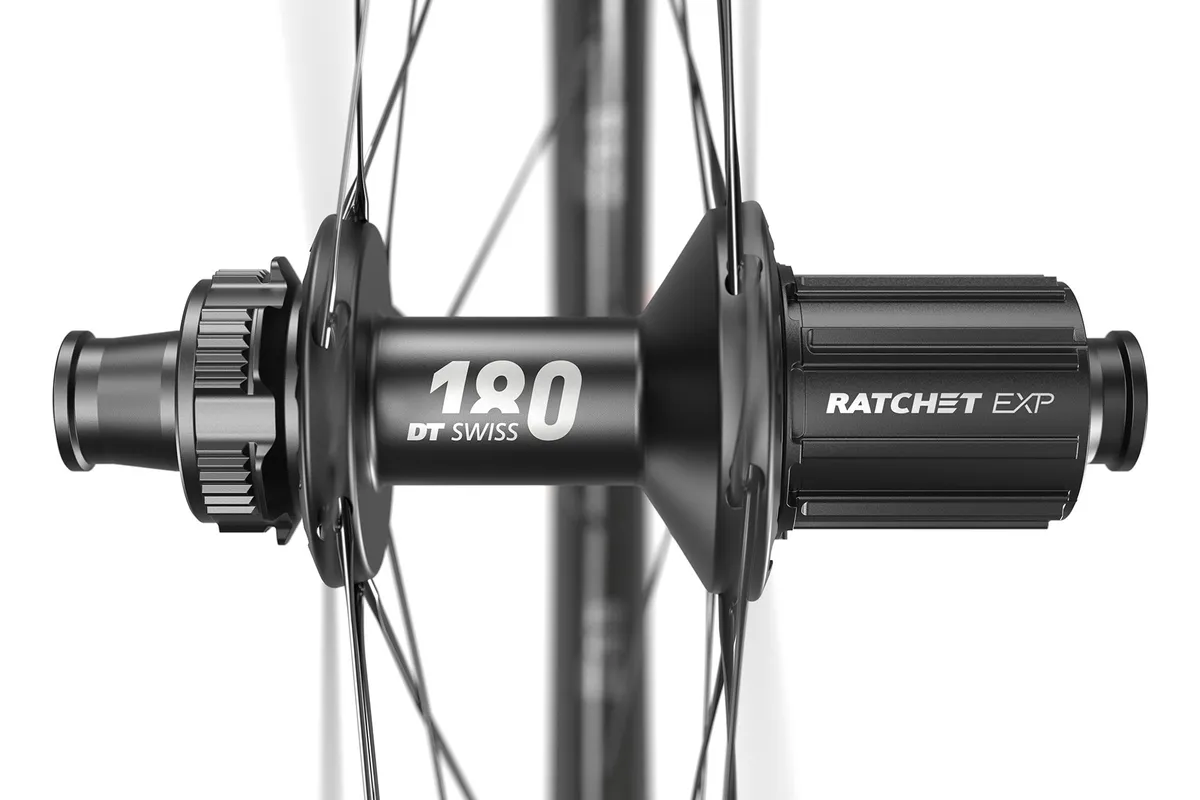
The redesigned 180 hubs are seen on the DICUT 1100 wheels. These are based around DT Swiss’s excellent Ratchet EXP freehub design and spin on ceramic bearings.
These hubs are actually not brand new and were first seen on the brand’s 1,266g Mon Chasseral wheels, which launched back in April.
DICUT 1400 wheels are built around 240-level hubs, which use steel bearings, the same Ratchet EXP freehub and a broadly similar hub shell.
Each wheelset ships with both XDR and Shimano HG freehubs.
DT Swiss ARC DICUT 1100 wheel specs
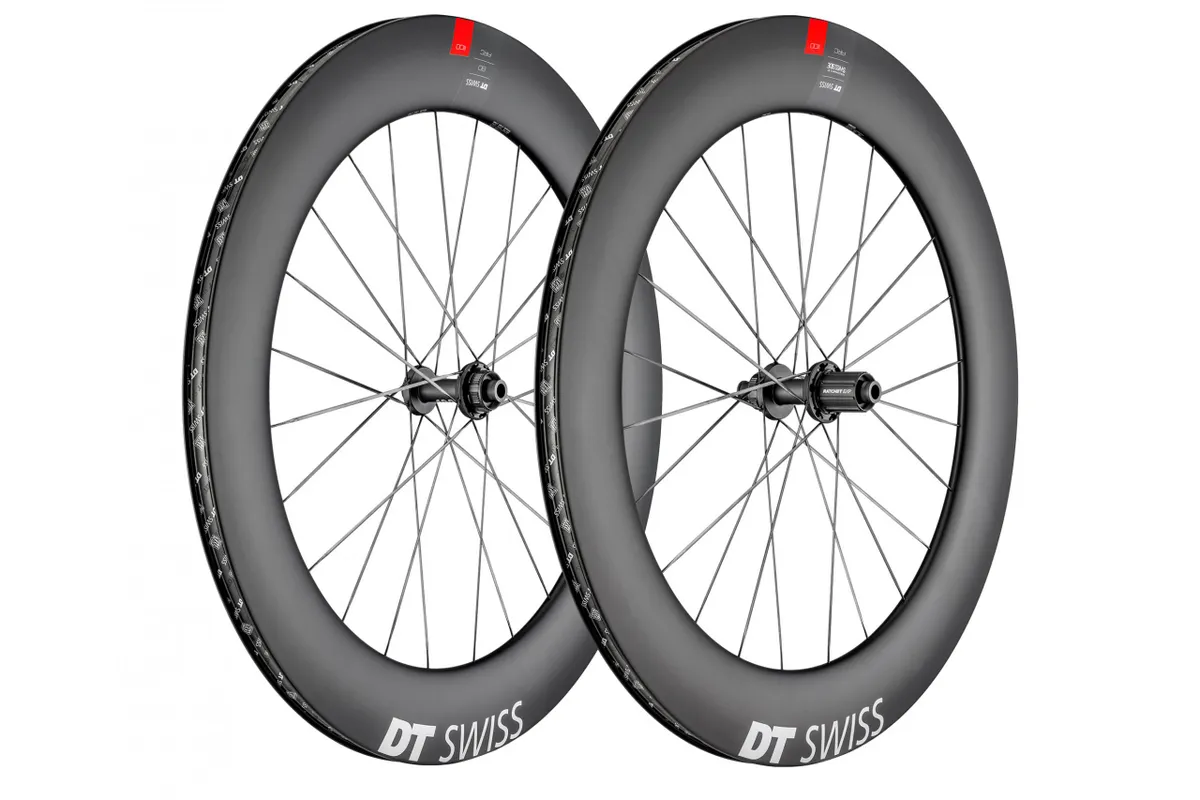
- Rim inner width: 20mm
- Recommended tyre width: 25mm–28mm
- Rim heights: 80mm / 62mm / 50mm (additional 650b option for ARC 1100 DICUT 50)
- Max system weight: 110kg
- Hub: DT Swiss DICUT 180
- Spokes: DT aerolite II and DT aero comp II
- Price: €2,388 / $3,025 / 2,653 CHF
DT Swiss ARC DICUT 1400 wheel specs
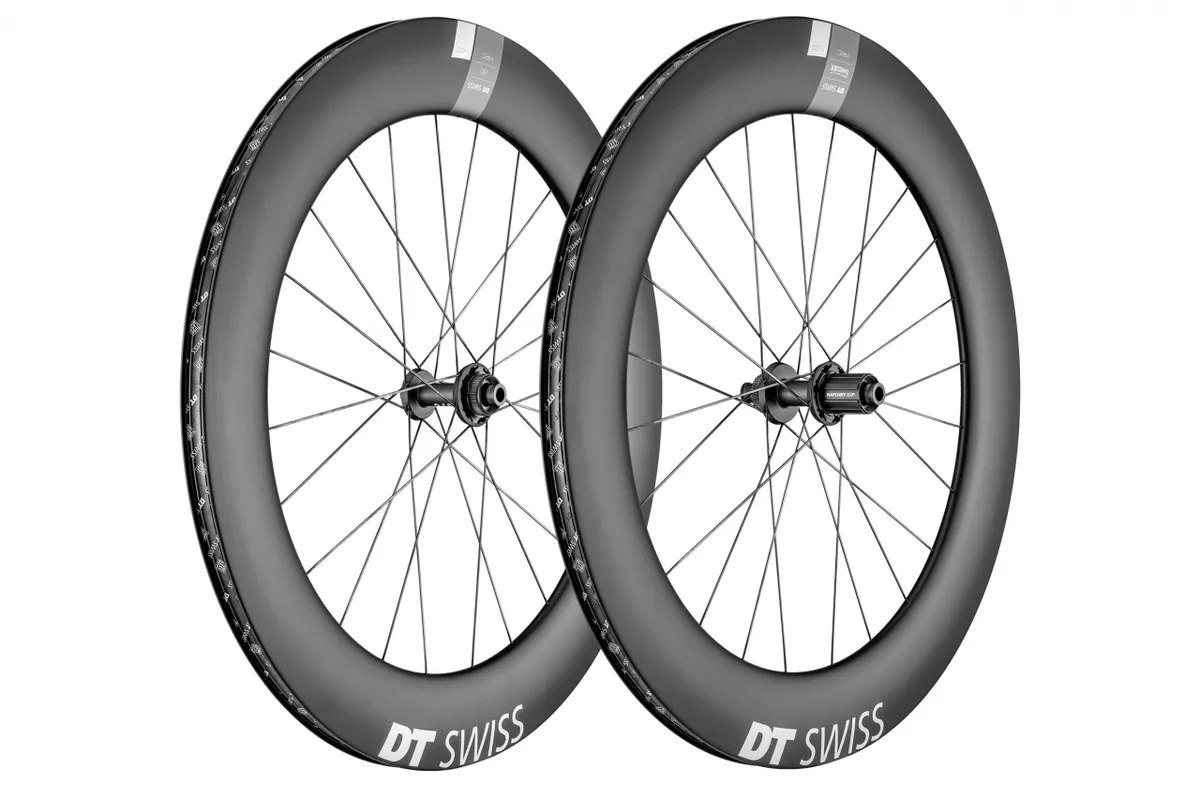
- Rim inner width: 20mm
- Recommended tyre width: 25mm–28mm
- Rim heights: 80mm / 62mm / 50mm
- Max system weight: 110kg
- Hub: DT Swiss DICUT 240
- Spokes: DT aero comp
- Price: €1,957 / $2,479 / 2,175 CHF
